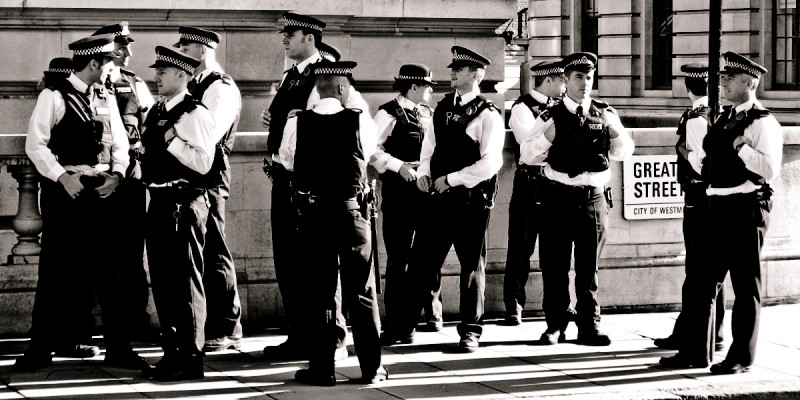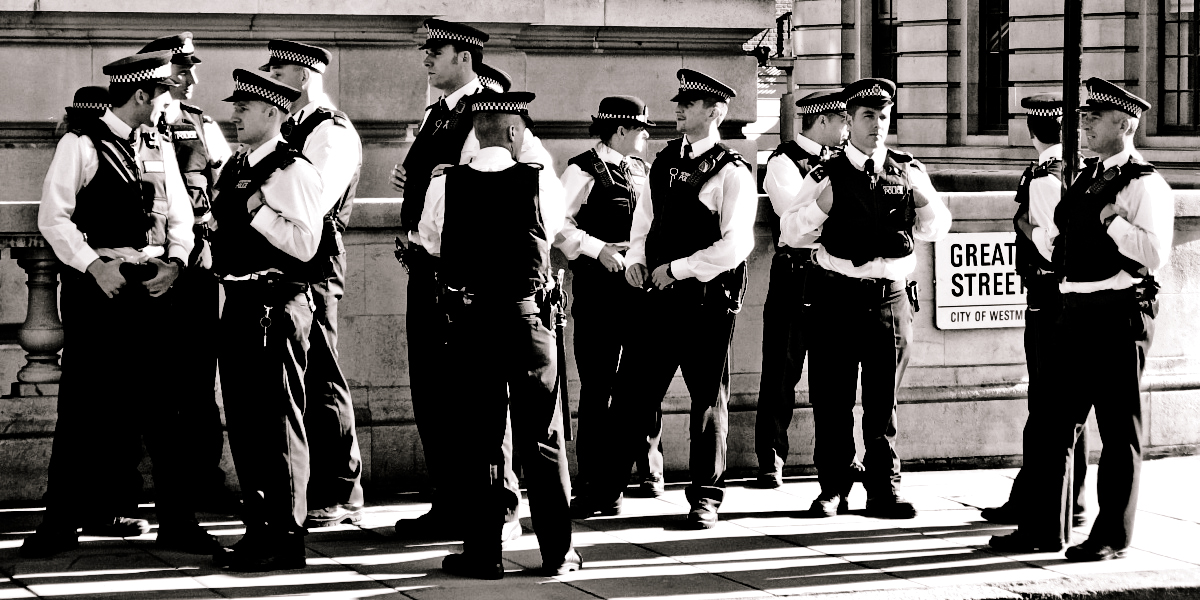
(ANTIMEDIA) United Kingdom — Seven British women have won substantial damages and an extraordinary apology from the Metropolitan Police after being deceived into forming relationships with undercover police officers.
The unprecedented apology and admittance of “abusive, deceitful, manipulative and wrong behaviour” by the Met comes four years after the women launched legal action against the force.
Since the exposure of undercover police officer Mark Kennedy in 2009, evidence that the Metropolitan Police sanctioned officers to sleep with targets has mounted. Kennedy spent seven years living as eco-activist Mark Stone after infiltrating a close-knit group of environmental activists. Despite being married, those in the movement claim the undercover cop had numerous sexual relationships over the years, which were a systematic means of gathering intelligence.
Another undercover officer, Bob Lambert, had relationships with four women while pretending to be an animal rights and environmental activist in the 1980s.
Some of the abusive and indefensible relationships which targeted political movements in the U.K. bore children.
On Friday, Police chiefs released a statement apologising unreservedly to the seven women who were deceived into forming “abusive and manipulative” long-term relationships with undercover officers.
Undisclosed, substantial amounts of compensation have also been paid those duped into the immoral and intimate relationships with undercover spies — some lasting up to nine years.
On Friday, the Metropolitan Police Service published the full apology after it was given to the seven women in person.
“Thanks in large part to the courage and tenacity of these women in bringing these matters to light it has become apparent that some officers, acting undercover whilst seeking to infiltrate protest groups, entered into long-term intimate sexual relationships with women which were abusive, deceitful, manipulative and wrong,” Assistant Commissioner Martin Hewitt said, as part of the settlement.
“I acknowledge that these relationships were a violation of the women’s human rights, an abuse of police power and caused significant trauma. I unreservedly apologise on behalf of the Metropolitan Police Service. I am aware that money alone cannot compensate the loss of time, their hurt or the feelings of abuse caused by these relationships,” he added.
The statement acknowledged that the women were deceived and suffered gross privacy violations in a situation that “may well have reflected attitudes towards women that should have no part in the culture of the Metropolitan Police.”
It said officers preyed on the women’s good nature and manipulated their emotions gratuitously and added that the subsequent trauma and secrecy left the women at risk of further abuse and deception by the officers, even after the deployment ended.
Responding to the apology, the women said: “No amount of ‘sorry’, or financial compensation, can make up for what we and others have endured, we are pleased the police have been forced to acknowledge the abusive nature of these relationships and that they should never happen.”
The relationships — which span a period of nearly 25 years — had remained hidden until they begun to be exposed by a series of media reports in 2010. By linking the cases together, a clear pattern of abusive and discriminatory behaviour towards women was revealed, which pointed to institutionalised sexism by the Metropolitan Police.
Police Spies Out of People’s Lives, a support group for legal action against the sinister policing methods, said:
“While the UK purports to be a democratic country, the level of deception perpetrated by state agents seeking to undermine movements for social change is more akin to that of the Stasi in East Germany. These professionally supported relationships – some of which bore children – lasted as long as nine years and have remained hidden from the public for decades. Indeed, the police still refuse to publicly acknowledge the harm caused to the children born of and into these relationships or even bring themselves to refer to them in their apology today.”
Substantial financial settlements made to seven of the women mean they are now unable to take the matter forward to open court. However, one has refused the settlement, and her fight to obtain disclosure and have the legal framework governing Britain’s undercover policing examined by the courts will continue.


